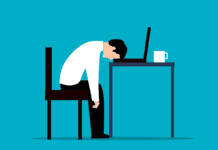Is euthanasia morally correct, and should it be legal? Though they sound similar, these are two very different questions. To determine whether euthanasia is morally correct, we have to justify how euthanasia is supported by our moral values, but to determine whether euthanasia should be legal we must also ask whether it can be properly administered. In this article, I will argue that euthanasia is morally correct. I will also argue that it shouldn’t be made legal around the world, at least not yet.
The strongest argument in favor of euthanasia is one of compassion. Some people with terminal illnesses experience a slow, agonizing passage towards death. For example, sufferers of amyotrophic lateral sclerosis (ALS) find that they slowly stop being able to move, swallow and breathe. The condition is incurable and always fatal, with most sufferers suffocating to death after 2-5 years. Daniel Ostropolsky, who suffers from the condition and advocates euthanasia, described in an interview this year how “ No device, invasive or not, and no operation of nature calms this feeling of suffocation.”
If you were in his position, would you want to endure years of pain and suffering? Would you want to suffocate so slowly you would be grateful to draw your final breath? Daniel Ostropolsky doesn’t, but Argentina hasn’t given him a choice. You probably wouldn’t have a choice either. After all, you probably don’t come from the five countries in the world that allow euthanasia. If you were unlucky enough to develop ALS, or terminal cancer, or any other agonizing illness, you might find yourself suddenly in Mr. Ostropolsky’s shoes.
Wanting to reduce suffering is a common moral instinct, found in moral philosophies such as utilitarianism, which seek to maximize well-being and minimize suffering. For those of you who think you might want euthanasia in similar circumstances, there’s also the age-old principle of treating others as you would want to be treated. For both these reasons, some of you might be convinced that euthanasia is moral.
Finally, one of the foundational values of liberal philosophy also supports euthanasia. According to John Stuart Mill’s harm principle, people should be able to choose what to do provided they’re not harming anybody else. Or as Oliver Wendell Holmes elegantly put it, “the freedom to swing my fist ends where your nose begins.” Clearly, choosing to end your life does not necessarily harm anyone else’s, and under this principle, euthanasia can be justified.
As shown, euthanasia can be justified as a moral principle. However, some principles don’t work in practice, and some argue that the right to die is one of them. The more common argument in this field is that euthanasia would be very hard to regulate properly. Some people might not actually want to die, but might need mental health care, or simply not be in a lucid mental state to choose between life or death. Similarly, euthanasia could be pushed onto unwilling patients by doctors or families trying to reduce costs, or place an invisible burden onto the victim to choose euthanasia so as to not hurt their loved ones financially. Finally, there is the argument that euthanasia paves the way towards a eugenics campaign against the disabled community. Eugenics refers to attempts to ‘improve’ humanity by ridding it of those deemed undesirable. At its worst, this involves murder.
The concern over cost-cutting can sound sensationalist, but it is backed up by sound evidence. According to BBC Ethics, a 1998 study found that cost-conscious doctors were more likely to accept their patients’ requests for euthanasia, suggesting that costs are a factor for some. Similarly, the cost of euthanasia is often also less than the cost of prolonged healthcare for families, something which might lead to coercion. Even where coercion does not take place, it’s only natural for patients to worry about their families. Patients might fear leaving their loved ones financially destitute or traumatized by slow, horrifying deaths. Such patients might really want to live but still choose to die for others. While it could be argued that a careful regulatory system would reduce these issues, it is clearly something countries must think about before legalizing euthanasia.
There are also concerns surrounding the use of euthanasia against the mentally ill. While emotional distress can be as acute and long-lasting as physical pain, some argue that the solution to emotional distress should be mental health care rather than euthanasia. This is an argument that is supported by the words of the mentally ill euthanasia applicants themselves. “If I had a choice,” a depressed young Belgian told the media, “I would choose a bearable life.” While I don’t believe that euthanasia should never be granted to the mentally ill, I’m convinced that it is a delicate issue that must be handled with the utmost care. Euthanasia should never be used as an alternative to therapy.
Finally, discriminatory social attitudes cannot be ignored. The disability rights movement has often expressed concern over the potential dangers of euthanasia for the disabled community. Some argue that allowing euthanasia for those who have become disabled implies that disability makes life not worth living, suggesting that disabled people would be better off dead. These social subtle messages can be very damaging to disabled people, whether they choose euthanasia or not.
Other disabled people allege that euthanasia leads to outright eugenics. This is not an unreasonable allegation. Euthanasia advocates have shown worrying attitudes towards the lives of disabled people before. Disability rights organizations such as The Independent Living Institute, have cited the reaction to the Latimer case among euthanasia proponents as evidence for this. Despite the fact that Robert Latimer murdered his disabled daughter without permission, the pro-euthanasia movement presented it as an example in favor of passing euthanasia laws. This fact is also alleged in the Canadian Encyclopedia. This is strong evidence that many in the pro-euthanasia movement cannot distinguish between killing somebody without permission, or put more bluntly murder, and euthanasia, at least not where disabled people are concerned. No wonder disabled people worry that euthanasia could easily lead to a eugenics campaign against them.
Should a morally justified principle be derailed because society is ableist? I would argue this is the wrong question, and one that inaccurately pits the rights of the disabled against the rights of those who wish to die. The pro-euthanasia movement must reform. It must not allow blatant and dangerous ableism among its members, as it did in the Latimer case. It must protect those on their deathbed from ableist doctors and families.
Let’s not give up on euthanasia, but let’s not brush concerns about it under the carpet either. Countries that don’t have euthanasia laws yet should be able to address these concerns before any laws are passed. Ideally, these concerns should be at the forefront of proponents’ minds when drafting legislation. Countries that already have euthanasia laws shouldn’t rest easy either. They must review their laws to make sure concerns are addressed, and reform laws that could allow people to feel as if they have no choice but to die since their lives are no longer valuable or worthy, as well as laws that could allow others to make this decision for them.








